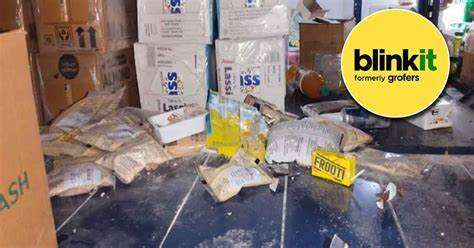The Maharashtra Food and Drug Administration (FDA) has suspended the food business licence of a Blinkit dark store in Pune after uncovering serious food safety lapses during a recent inspection. This action follows similar enforcement against Zepto facilities in Mumbai, signaling growing regulatory scrutiny over quick-commerce operations in the state.
The FDA, in its statement, cited violations of the Food Safety and Standards Act, 2006. Inspectors reportedly found unsatisfactory food storage conditions, poor hygiene, and non-compliant packaging and labeling practices during their surprise visit to the warehouse.
An FDA official stated, “We observed major lapses that could pose health risks to consumers. Therefore, we have immediately suspended operations at the facility until corrective measures are taken.”
Blinkit, which is backed by Zomato, functions through a network of dark stores that stock groceries and essentials for ultra-fast delivery, often within 10 minutes. These storage units are not accessible to the public and rely on digital orders to operate.
In response to the suspension, Blinkit issued a statement saying it is fully cooperating with the FDA and has initiated corrective steps. “Food safety is a top priority for us. We are working with the authorities to resolve the matter and resume services from the affected location as soon as possible,” the company said.
The action has drawn attention to the quick-commerce industry’s compliance challenges as companies rapidly scale their operations. Industry analysts have pointed out that while speed and convenience have fueled the popularity of such services, safety and regulatory compliance must not be compromised.
“Convenience should never come at the cost of consumer health,” said Dr. Anjali Deshmukh, a food safety consultant based in Pune. “Regular inspections and stringent quality checks are essential for any company dealing with food products.”
The FDA has also confirmed that inspections of other dark stores in the region are ongoing, and more suspensions may follow if violations are detected. Officials emphasized that enforcement will continue to ensure that food products sold through quick-commerce platforms meet all regulatory requirements.
This incident, coupled with recent action against Zepto, may prompt a sector-wide overhaul in operational standards, especially in areas related to hygiene, food handling, and supply chain traceability.
As the regulatory landscape tightens, quick-commerce platforms are expected to invest more heavily in compliance infrastructure, training, and quality assurance to avoid further penalties and maintain public trust.



